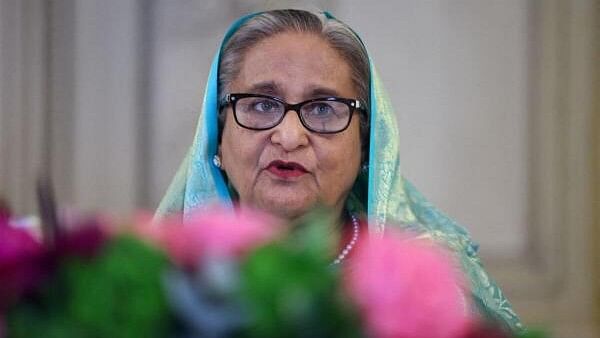
Former Bangladesh prime minister Sheikh Hasina.
Credit: Reuters Photo
Sheikh Hasina, who resigned as prime minister and fled Bangladesh this week amid dramatic protests against her reign, has no plans to return to the country her family shaped for decades.
“She said she will never go back to Bangladesh,” Sajeeb Wazed, Hasina’s son and an adviser in her ousted government, said in a phone interview from Washington.
“In fact, to be entirely candid, she told me that none of our family will ever go back to Bangladesh.”
Her resignation marks the end of an era for a family that’s ruled Bangladesh for much of its modern history. Hasina’s father, Sheikh Mujibur Rehman, was the nation’s first president and led the independence struggle against Pakistan that created an independent Bangladesh in 1971.
Hasina’s imprint on the country is no less indelible. She’s Bangladesh’s longest-serving prime minister and has won successive elections since 2009. Under her tenure, Hasina lifted millions out of poverty through garment exports, adroitly balanced ties with China and India, and rooted out Islamists from politics in one of the world’s few Muslim democracies.
But critics say authoritarian impulses pulled Bangladesh in a darker direction, and that Hasina stamped out dissent by filling her administration with loyalists and hobbling opponents through legal pressure. Those frustrations boiled over on Sunday, when protesters began to forcefully demand her resignation.
By Monday, Hasina and her sister were on a plane bound for India. She’s been moved to an undisclosed location in Delhi and will stay for as long as she needs, according to Indian officials who didn’t want to be named because of the sensitivity of the issue. Several nations, including India, are being considered for a more permanent move, according to the officials.
India’s Ministry of External Affairs did not respond to a Bloomberg request for comment.
“As to where she will live, no decision has been made,” said Sajeeb, without elaborating. He said he spoke with his mother after she reached Delhi and she was “in perfect health and good spirits,” but sad about the turmoil in Bangladesh and the hundreds who’ve been killed there in recent weeks.
Sajeeb said his mother had already planned to retire in a few years with the end of her fifth term. “For her to be pushed out this way, and my grandfather’s memory, the father of the nation, to be insulted and desecrated in this manner, has disappointed all of us,” he said.
Sajeeb said the Bangladesh government under Hasina had made mistakes during 15 years of consecutive rule, but officials “always righted the ship.”
“Nothing is perfect,” Sajeeb said, adding that strong leaders in developing countries who win successive elections are often unfairly called dictators.
The former leader’s son blamed Pakistan and the US for fanning the protests that ultimately pushed Hasina out. The demonstrations initially started over opposition to quotas that reserve government jobs for specific groups — a law many felt favored Hasina’s allies.
“I do not have any evidence” of interference, Sajeeb said, “but I’m quite certain that Pakistan is involved.” He said the US State Department had also taken a more critical line against his mother.
The US prefers foreign governments that are “more under their control or follow their instructions,” he said. “They could not do that with my mother in power.”